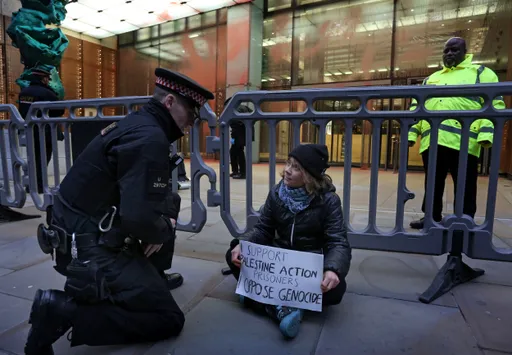A coalition government is a form of government consisting of more than one political party and comes into being when a single party can not obtain an absolute majority after an election.
This type of governmental system, which is widespread worldwide, has advantages and disadvantages, but it can hardly be said that its harms are more than its benefits.
Countries ruled by coalition governments continue with the system not because it is perfect but because their political atmosphere keeps them from abandoning it.
We know that Italy had 68 governments in 76 years. Israel had five elections in four years between 2018 and 2022. Dutch parties could not form a government in nine months after elections in 2021.
Even if governments are constituted eventually, they have a very short lifespan – as coalition partners have different views, methods, expectations and goals regarding governing.
When party interests clash, they dissolve the government and cause an impasse in administration. In addition, decision-making is slow and not assertive in coalition governments.
There are, of course, small benefits of coalition governments. Such as giving power to different factions of society and representing the will of the majority of the population.
But so many short-lived governments indicate that coalition governments are not the preferable choice, though some people may think otherwise.
Türkiye in focus
Türkiye is yet another country that suffered from coalition governments in the past.
The country witnessed the first coalition government in 1961 when the ideologically opposite right-wing Justice Party (Adalet Partisi-AP) and left-wing/pro-establishment People’s Republican Party (Cumhuriyet Halk Partisi-CHP) formed the post-coup government. But the government lasted only for seven months.
Between 1961 to 2002, when Recep Tayyip Erdogan’s AK Party came to power, 17 coalition governments ruled Türkiye.
While their average lifespan was 2.4 years, the shortest-lived government lasted three months and the longest 3.5 years.
Moreover, the parliamentary system frequently led to political turmoil and snap elections, resulting in the formation of a staggering number of 48 governments since 1950.
Unlike in other countries, Türkiye’s military was very influential in politics during the parliamentary system and abused the weakness of successive governments.
While the first coalition government was formed after a coup, other multi-party governments were formed more or less under the pressure of army generals. Prime Minister Necmettin Erbakan was forced to dissolve the coalition government in 1997. The new three-party government (Anasol-D) that replaced Erbakan’s premiership was again a result of military pressure.
The Turkish army was like the Damocles’s Sword hanging over single-party governments as well, but forming/deforming coalitions was always easier for army generals.
Moreover, Turkish coalition governments harmed the state, particularly the treasury. The following example is noteworthy in showing their destructive impact.
Before the AK Party came to power in 2002, a three-party coalition ruled Türkiye. The three biggest state-owned banks, which are now breaking profit records, were disaffiliated from the Ministry of Economy, and each was tied to three other ministries headed by three different coalition parties’ ministers. The banks’ money was siphoned off by coalition parties, leaving them almost bankrupt. It also sparked Türkiye’s biggest banking crisis in history.
Being aware of the disastrous effects of coalitions, President Recep Tayyip Erdogan – then the Prime Minister – put forth the idea of his presidential system in the mid-2010s for public discussion and initiated his campaign in 2015.
Late presidents Turgut Ozal and Suleyman Demirel had wanted to switch to a presidential system, but they failed to realise it. President Recep Tayyip Erdogan was assertive about the change, and eventually, Türkiye accepted the system through a referendum held on April 17, 2017. It was formally adopted on July 9, 2018.
Since then, Türkiye has enjoyed political stability like never before, as well as prompt and effective decision-making that has reflected in the quality of life for the Turkish people.
Türkiye saw the full benefits of the presidential system during the Covid pandemic, the post-pandemic disruptions and the twin earthquakes on February 6, 2023.
Opposing voices
Despite the visible benefits of the presidential system, there are some who are opposed to it though their accusations are barely convincing.
The argument that all power is concentrated in one man’s hands is wrong because, previously, the prime minister had the same powers.
There was also a president in the parliamentary system, but he was only approving what government or parliament enacted though there were some exceptions. This was because the president was being elected by mostly the ruling party.
On the other hand, when another party elected him, political crises were breaking out. Furthermore, the presidential seat during the parliamentary system was symbolic, had a weak authority, and generally causing political turmoil unless elected by the governing party’s members in the parliament.
Though the Turkish opposition parties argue that they will reinstate the parliamentary system, their statements are contradictory.
At a TV programme during his presidential campaign in 2018, CHP’s presidential candidate Muharrem Ince said he would use presidential power rather than abandon it. In addition, while the opposition’s Nation Alliance still favours a strengthened parliamentary system in their statements, their crystalised governmental system composes of a president and seven vice presidents, which is not seen as reasonable even by the opposition’s supporters.
It seems that the Turkish opposition is not against the presidential system but against the president, that is President Recep Tayyip Erdogan.
It can be argued that Türkiye, from people on the street to political parties, is happy with the presidential system, and no parties will probably attempt to return to the parliamentary system. In other words, Türkiye has decided about its governmental system, and it will hardly be changed.
But no system is perfect, and many people – including President Recep Tayyip Erdogan – acknowledge that some adjustments are needed. Some retouches might be expected after the May 14 elections.
























